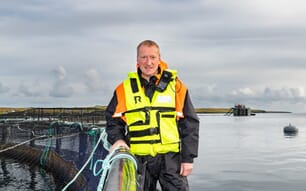Against a background of recovering stocks and a days’ allocation for fishing that has been pared to the bone and jeopardising the economic viability of the fleet, the SFF says it is imperative that there are no further cuts in effort.
Additional annual reductions in days are an integral part of the widely discredited Cod Recovery Plan, and although they were fended-off successfully last year because of ongoing stock recovery and fleet economic hardship, the SFF is warning that the mechanism is still in place for the imposition of further cuts in effort.
“It is essential that the Scottish and UK negotiating teams fight hard to ensure that the spectre of these cuts do not materialise,” said Bertie Armstrong, chief executive of the SFF.
“Stocks are recovering in spite of the dysfunctional Cod Plan, and if there are any further cuts in days, then there quite simply won’t be a fleet left to sustainably harvest this increased abundance of fish.”
As far as quotas are concerned, this year’s Fish Council will only be able to make firm decisions on those stocks exclusively belonging to the EU – such as many found off the West coast of Scotland. Key shared stocks with Norway in the North Sea – for example cod, haddock, whiting and mackerel – will not be decided upon until after the New Year due to the failure so far to reach agreement on mackerel shares with Iceland and the Faroes.
Headline figures up for agreement at the Fish Council include a proposed increase in Northern hake and megrim, given the good stock levels of these species. However, cuts are being proposed for West of Scotland haddock and whiting, and West of Scotland and North Sea monkfish. Cuts are also being proposed for North Sea and West coast prawns (Nephrops or langoustines).
Bertie Armstrong said: “The Common Fisheries Policy reform element of these negotiations is driven by the move towards the principle of ‘Maximum Sustainable Yield’ and the impending discards ban that is just around the corner. This translates into above average reductions in fishing opportunity and it will be essential that the management measures imposed to meet these aims are not self-defeating in that they end up actually increasing discard levels in our mixed fisheries.”



